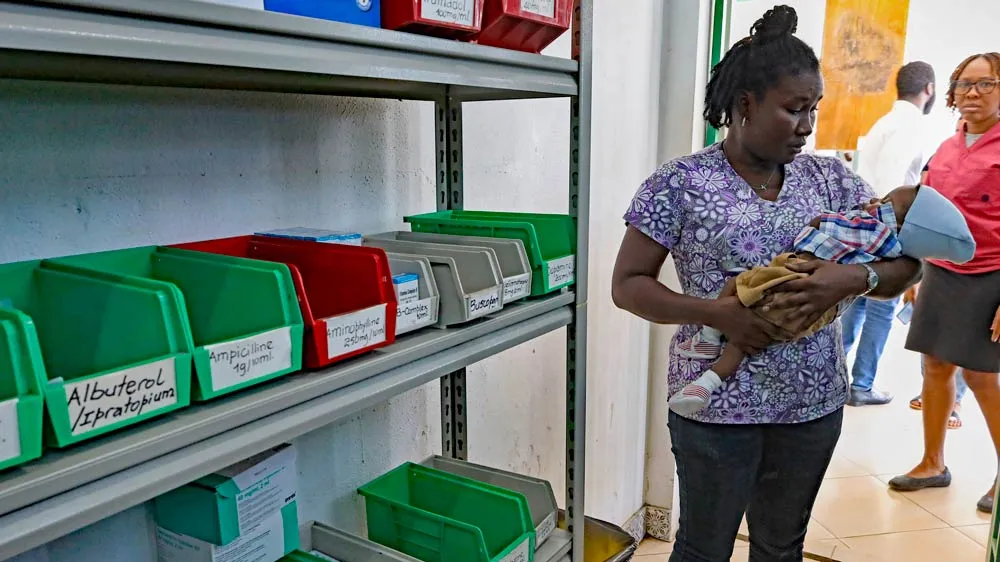July 20, 2017
Quigley Leads 32 Democrats in Sending Letter to FDA Urging End of Discriminatory Blood Ban
READ TIME: 3 MIN.
Today, U.S. Representative Mike Quigley (IL-05), who serves as Vice Chair of the LGBT Equality Caucus, led 32 of his Democratic colleagues in sending a letter to the Food and Drug Administration (FDA) urging them to update the outdated restrictions on blood donation by gay and bisexual men.
The FDA's current policy for men who have had sex with men (MSM) requires a 12-month deferral or celibacy period before being able to donate blood. Rep. Quigley is the leading voice in Congress on the need to end the discriminatory blood ban policy once and for all.
Today, as a member of the House Appropriations Committee, he also offered an amendment that would instruct the National Heart, Lung and Blood Institute to work with FDA to update their antiquated and prejudiced blood donor questionnaire.
"Not only does the current MSM deferral policy deny MSM the chance to give back to affected members of their community, but it also perpetuates an outdated stigma surrounding their community," read the letter. "The 12-month celibacy policy suggests that sexual relationships of MSM men and transgender women pose a heightened risk of HIV transmission; we now know this to be false. Yet the current policy reinforces this negative and inaccurate stereotype that we have fought so hard to eliminate. We believe that the FDA questionnaire should reflect risk-based behaviors rather than one's sexual orientation."
Click here for the signed letter or see below:
Commissioner Scott Gottlieb, M.D.
U.S. Food and Drug Administration
Dear Dr. Gottlieb:
As we have recently passed the one year anniversary of the mass shooting at Pulse Nightclub in Orlando, Florida, we are once again reminded of the outdated and erroneous FDA blood donation deferral policy for men who have sex with other men (MSM). The antiquated policy of requiring 12-month celibacy for MSM to donate blood is both discriminatory and harmful as it excludes an entire population of healthy blood donors eager to help save lives.
We appreciate the willingness of the FDA to engage in discussions pertaining to MSM deferral policy and welcomed the official repeal in 2015 of the lifetime ban on MSM donating blood in favor of the current 12-month celibacy requirement. We remain encouraged by the FDA's commitment to implementing safe, non-discriminatory practices. While the current recommendations demonstrate an improvement over the previous lifetime ban, the science backing the 12-month celibacy requirement is now obsolete given current blood screening technology in identifying HIV/AIDS.
Last year's shooting at Pulse Nightclub was the largest mass shooting in U.S. history; killing 49 victims and wounding another 53, many of whom were members of the LGBTQ community. The subsequent display of compassion displayed by Floridians and Americans around the country who donated blood serves as a testimony to American perseverance and solidarity. However, due to the current MSM deferral policy, many healthy gay and bisexual men were denied from donating desperately needed blood. The FDA's deferral policy labeled many MSM men as ineligible to donate blood given the impractical standards these men are forced to meet. Members of the community most affected by this tragedy found themselves ostracized from participating in the recovery.
Not only does the current MSM deferral policy deny MSM the chance to give back to affected members of their community, it perpetuates an outdated stigma surrounding their community. The 12-month celibacy policy suggests that sexual relationships of MSM men and transgender women pose a heightened risk of HIV transmission; we now know this to be false. Yet the current policy reinforces this negative and inaccurate stereotype that we have fought so hard to eliminate. We believe that the FDA questionnaire should reflect risk-based behaviors rather than one's sexual orientation.
Considering this, we respectfully request an update to the FDA's 12-month celibacy policy pertaining to MSM. Under your leadership, we urge the FDA to reaffirm its sound commitment to fighting discrimination and move towards policy changes that reflect a screening system based on transfusion-transmissible infections rather than the donor's sexual orientation, subjecting all donors to the same risk and infection evaluations.
We appreciate your attention to this urgent matter and eagerly await your response.


